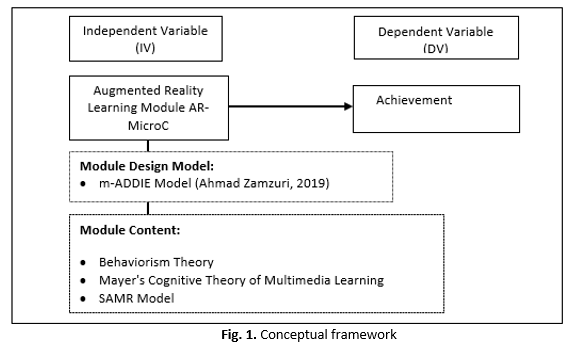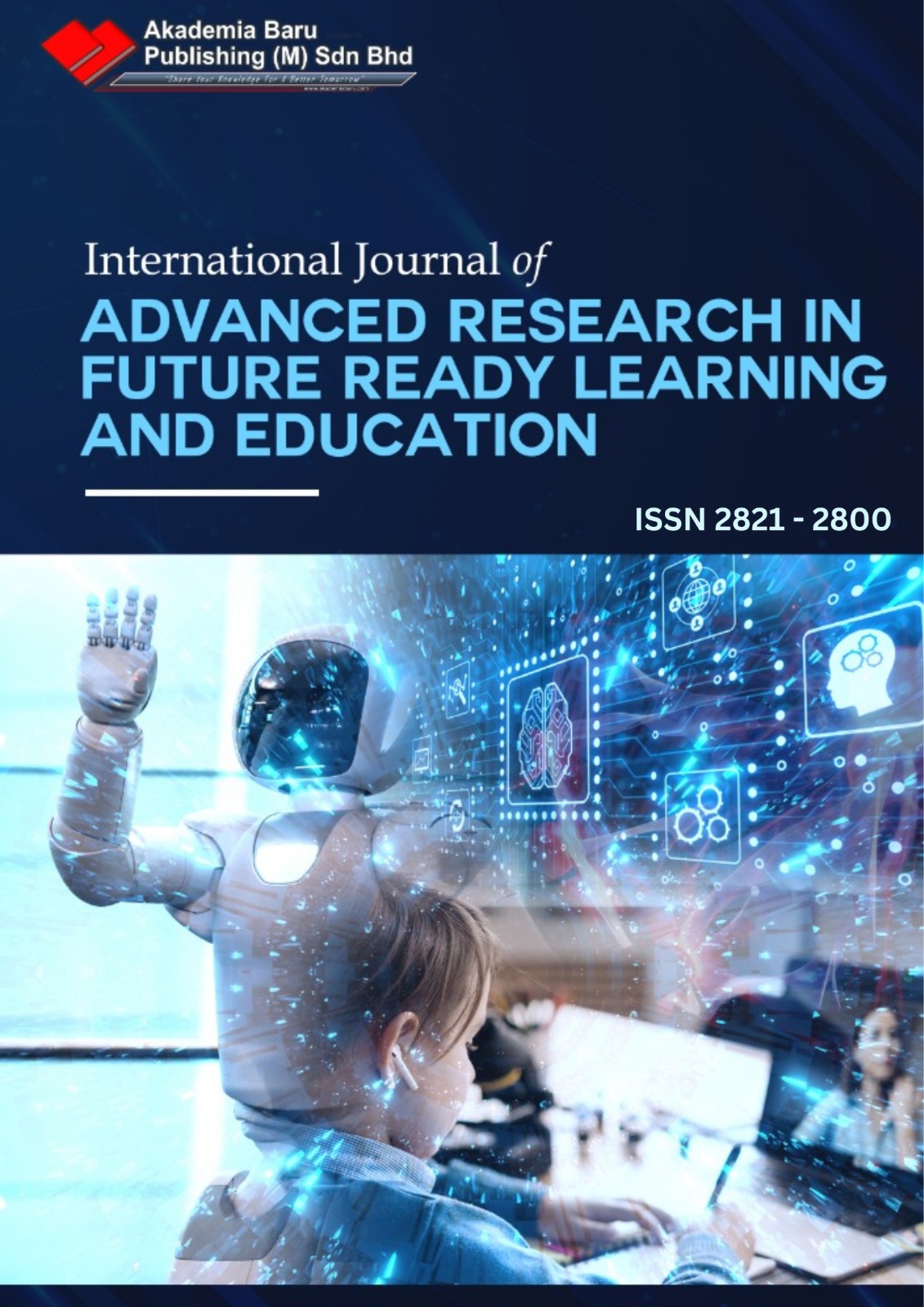Transforming Technical Education: The Effect of the AR-MicroC Augmented Reality Learning Module on Students Achievement
DOI:
https://doi.org/10.37934/frle.37.1.89100Keywords:
Augmented reality, learning modules, achievements, Internet of Things (IoT), Quasi experimentsAbstract
Technological advances driven by Industrial Revolution 4.0 (IR4.0) have introduced digital technologies such as Augmented Reality (AR) that are changing the approach to learning. This study aims to evaluate the effectiveness of using the AR-MicroC Augmented Reality Learning Module in improving student achievement in the Information Technology Certificate program at the Malaysian Community College. A quantitative approach with a quasi-experimental design was used, involving 66 students who were divided into two groups: a treatment group (n=32) who used the AR-MicroC module and a control group (n=34) who followed conventional teaching methods. Data was collected through pre-test and post-test for the Introduction to Internet of Things (IoT) course. The study lasted for five weeks, involving pre-test, teaching, and post-test phases. Data analysis using independent sample t-test and paired sample t-test showed a significant difference in achievement between the two groups. The results of the study prove that the AR-MicroC module is effective in improving student performance. The implications of this study suggest the use of the AR-MicroC Augmented Reality Learning Module as an innovative alternative teaching tool in the learning process, especially in transforming technical education.














